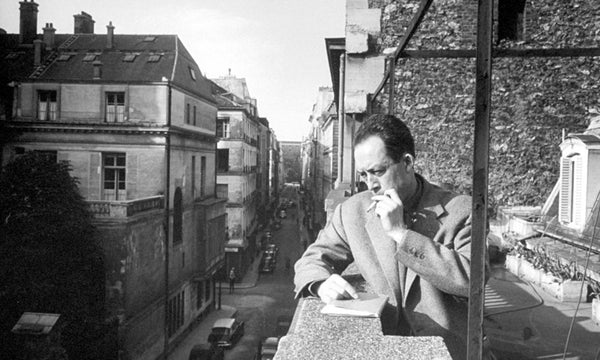
On the 7th 2013 of November, Albert Camus would have been one hundred years old, if it were not for the clumsy brakes of his "Facel Vega" car, that crashed on the 4 January 1960 killing both the second youngest Nobel prize laureate and his dear friend, Michel Gallimard.
Albert was born 1913 in a small town of Mondovi, currently Dréan, on the Mediterranean coast in eastern Algeria. From poverty and obscurity he managed to rise to fame, to make a political stand to enshrine in us a lack of fear. He was a pied-noir: a native to a state gone-by, of a world long past, the colonial French empire that sprawled on African shores of Mediterranean. And as the empire crumbled and asked for highest sacrifices (Camus's father died in the trenches of the First World War), Albert realized that it is the sea, the sea that for him was always "close by", that is his true homeland. In this chosen world, Camus grew to be the literary genius of his era.

The sea was ever present in his works, but for him “Mediterranean [was] a certain smell or scent that we do not need to express: we all feel it through our skin”. He rejected the warmongering roots of the southern culture and saw it in a completely different place. He, associated in our minds so much with pessimism and existential philosophy, had a lively down to earth understanding of his native culture: “What we claim as Mediterranean is not a liking for reasoning and abstractions, but its physical life – the courtyards, the cypresses, the strings of pimientos. We claim Aeschylus and not Euripides, the Doric Apollos and not the copies in the Vatican.”
For Camus, under the Mediterranean scorching sun was the place and the environment where he could practice his sysyphic ritual of writing, a ritual in which he did not allow anything to “dissuade you from revising again and again, which can really improve a piece of writing.” In the carefully revised words one can feel the true freedom of a writer who is in love with his culture, whose homeland stretches from Barcelona through Algiers to Athens, who even as he walks in the extremely hot sun of the Algerian countryside knows that the sea is close by. And he can say
"…I wake up at night, and, still half-asleep, think I hear the sound of the waves and the breathing of the waters. Fully awake, I recognize the wind in the trees and the sad murmur of the empty town."
Albert Camus
And every time we read the pages of his novels we immerse ourselves in this quietly whispering sea that calms and comforts us.



